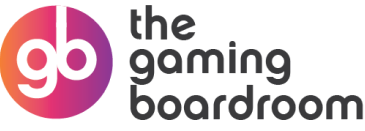I love a bit of Q&A as it allows me to answer the really simple questions that no one likes to ask in public. Ones that I’ve had to ask and find answers to for you! 💕
Here, I answer some of the most common questions on bias.
🔎 Q: Why is it important to recognise biases in decision-making?
A: Recognising biases is the first step toward making more informed and fair decisions. Without this awareness, we run the risk of making choices that are not only flawed but also potentially unfair or discriminatory.
🔎 Q: What is Confirmation Bias, and how can we combat it?
A: Confirmation Bias is the tendency to seek out or interpret information in a way that confirms our existing beliefs. To combat this, seeking out opposing viewpoints and actively challenging our initial assumptions is crucial.
🔎 Q: Can Overconfidence Bias really impact my decision-making?
A: Absolutely. Overconfidence can lead us to underestimate risks and overestimate our own abilities, often resulting in poor decisions. The remedy is to step back, question our own expertise, and seek external validation when possible.
🔎 Q: What’s the problem with Groupthink?
A: Groupthink suppresses individual viewpoints and critical thinking in favour of conformity. This can be particularly harmful in business settings where robust debate and varied perspectives are crucial for making sound decisions.
🔎 Q: How does the Anchoring Bias work?
A: Anchoring Bias occurs when we give disproportionate weight to the first piece of information we encounter. To counteract this, make it a practice to gather multiple pieces of information before arriving at a decision.
🔎 Q: Are emotional biases always bad?
A: Not necessarily. Emotions are integral to human experience and can sometimes guide us to make ethical and meaningful decisions. However, unchecked emotional biases can lead to impulsive or irrational choices.
🔎 Q: Can cultural and social biases be eradicated?
A: Eradication is a tall order, but awareness and education can help mitigate these biases’ impact. Being conscious of the cultural lenses through which we view the world can help us make more inclusive decisions.
🔎 Q: How can we train ourselves to be less biased?
A: Learning and self-awareness are essential. Seek external perspectives and use decision-making frameworks to examine biases. Promote open dialogue about biases.
If you have any other questions you want to ask, then you can reach out to me and ask, and I’ll do my best to find the answers for you.
Bias has played a huge role in my learning curve over the last 3 years, and I’ve spent a lot of time looking, asking and finding answers to it after an uncomfortable email and conversation I received from one of my team members in 2021!
Ready to make better decisions?

